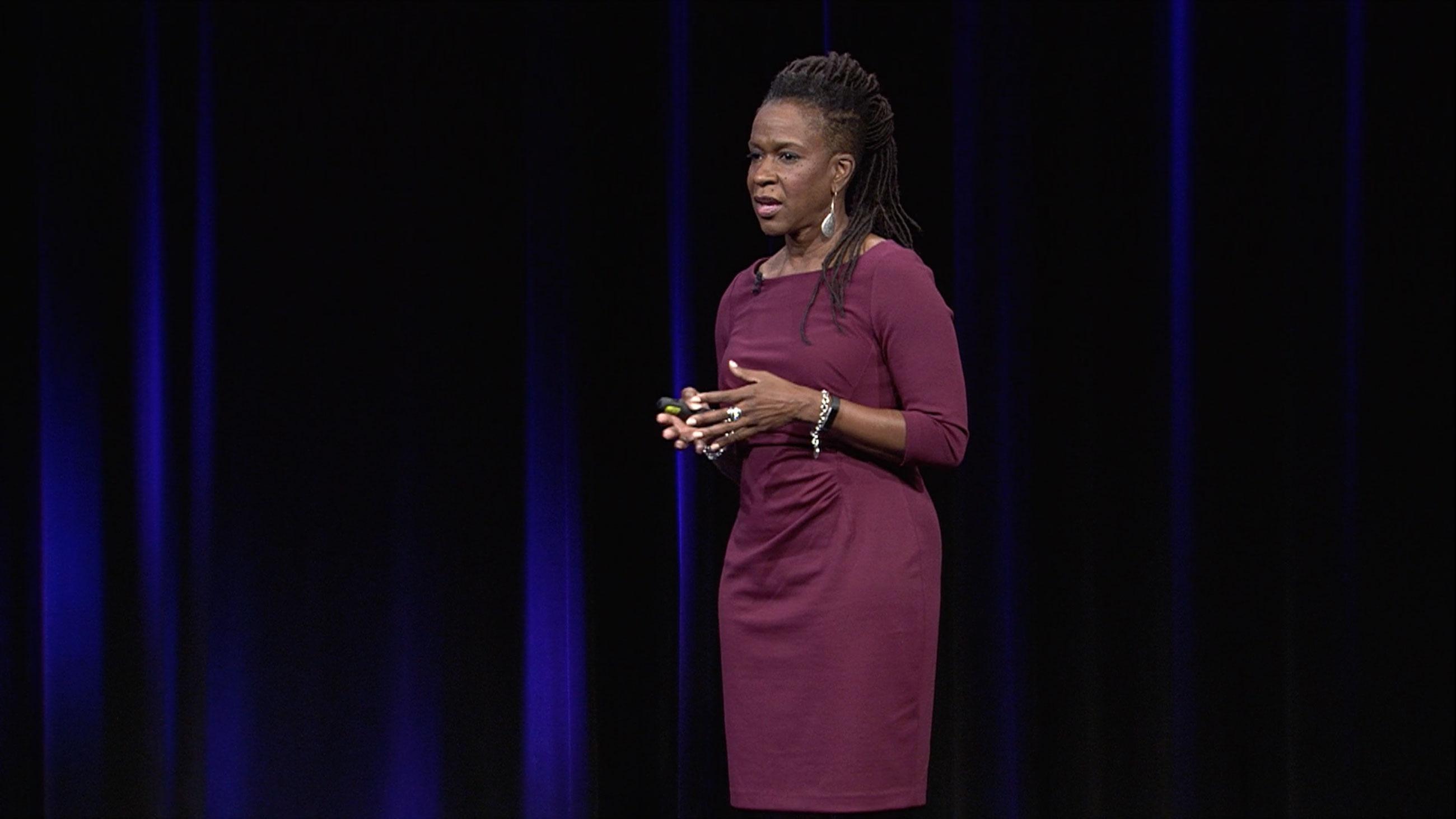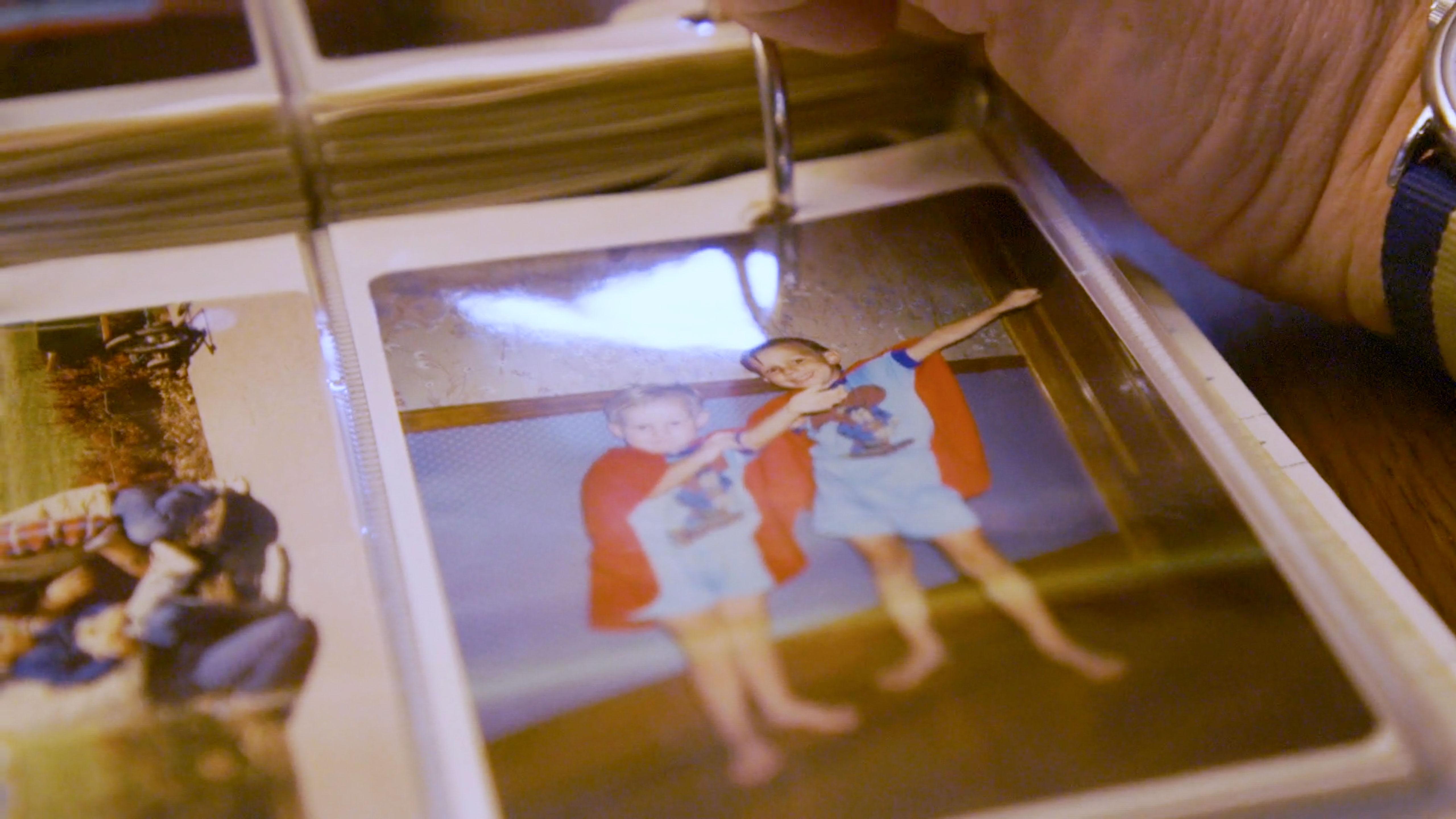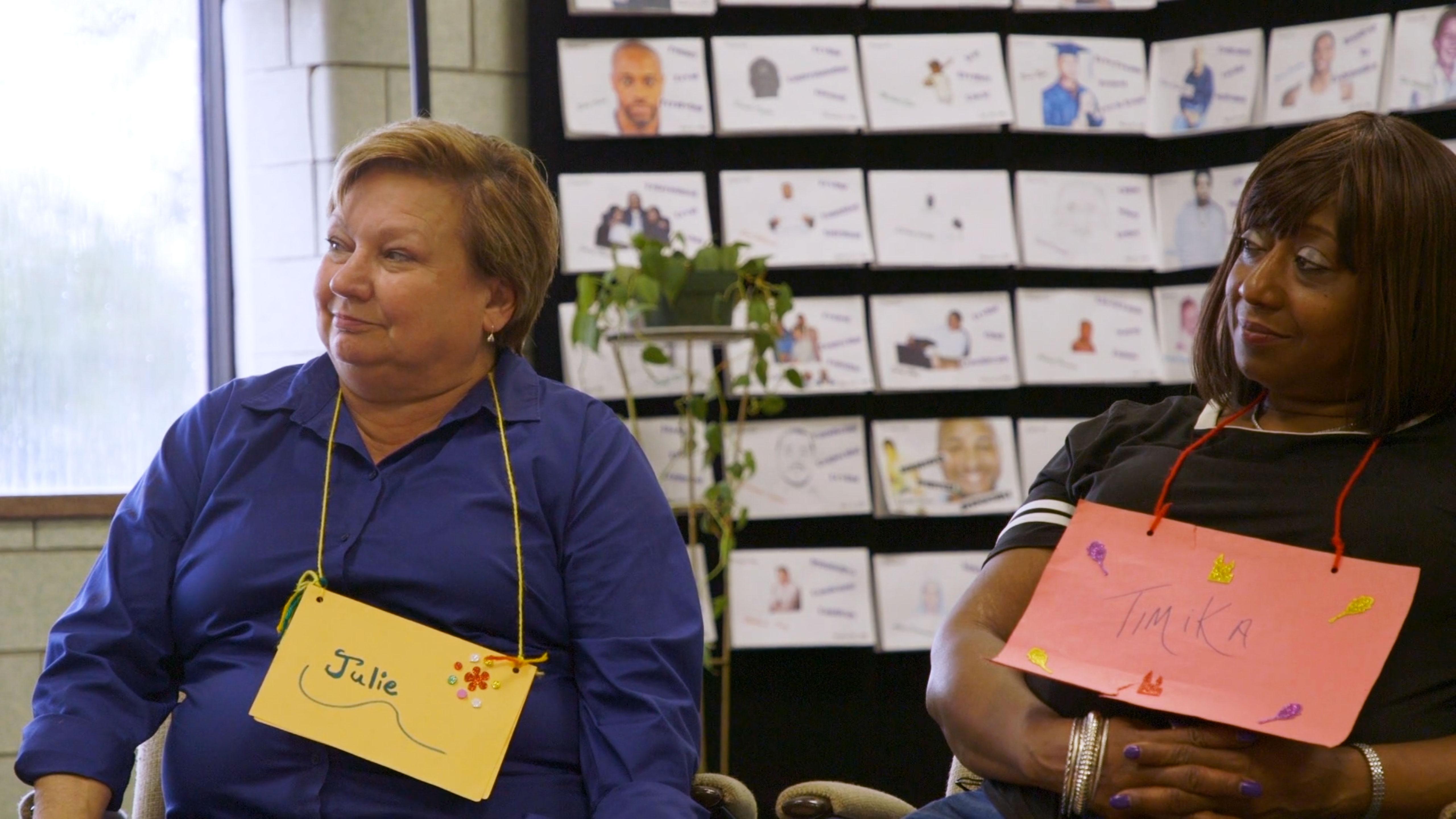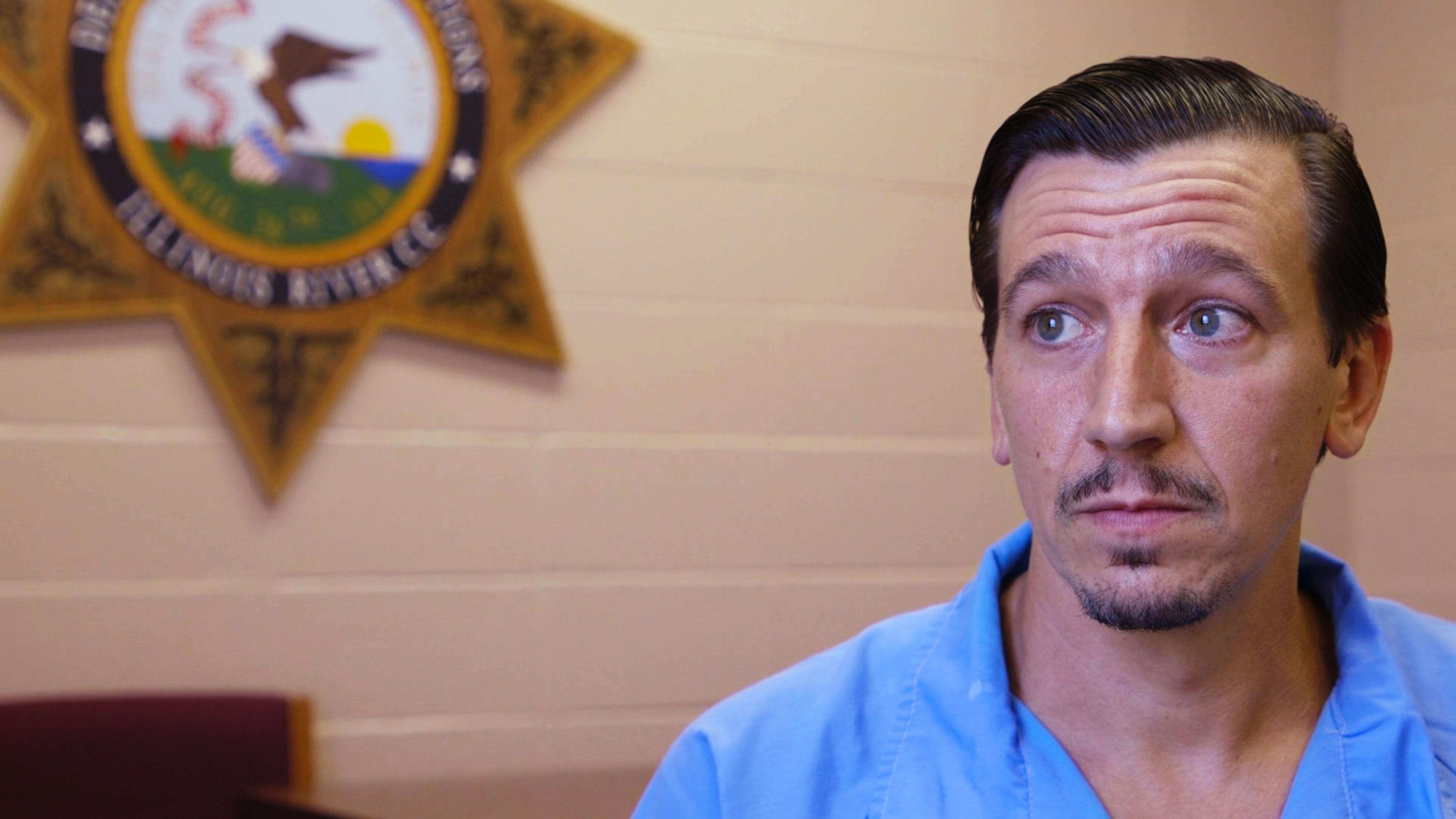Julie Anderson | Stories | Firsthand: Gun Violence
Parents of Chicago Teens Convicted of Shootings Find a Common Cause in Prison Reform
A unique support group offers a space for families to lean on each other and advocate for more rehabilitation. “One mistake or going along with the wrong group…doesn’t mean that you are a terrible person or that you can’t change.”
On a Tuesday evening in October, about a dozen Chicagoans gather in a community center on the South Side to talk about loved ones serving sentences in Illinois prisons. Around tables adorned with pumpkins and squash, they give updates on appeals and charges and hearings. News – both good and bad – is punctuated with hugs and eager acknowledgement.
Everyone knows everyone as if they’re family – because in this room, they are.

Watch: Healing is in Our Stories
Anderson is one of the founding members of Communities and Relatives of Illinois Incarcerated Children. Since 2008, CRIIC has served as a support system for families and friends of young people sentenced to long sentences in Illinois. Every month, the group holds meetings on Chicago’s South Side. Outside of the meetings, members travel to prisons together; visit, call, and write each other’s loved ones; and offer advice to families experiencing incarceration for the first time.
“This group for me has been very healing because it allows you to talk about the person you love that's in prison, be it your son or brother, uncle, dad, and to not be judged by it,” says Anderson.
At the age of 15, Anderson’s son, Eric, shot at a van that he thought contained two rival gang members. But two girls were in the van instead. Both died. Eric was sentenced to life in prison.

Julie Anderson Photo by Zakkiyyah Najeebah for WTTW
In the aftermath of her son’s sentencing, Anderson felt lost. Navigating life without him – and dealing with the emotional, legal, and financial fallout from his conviction – was daunting. The burden grew lighter when she was introduced to other families of young men who had received mandatory life sentences as teenagers, many due to incidents involving guns. They understood the weight of what she was feeling, because, like Anderson, they didn’t know what to expect from the years to come.
“We just rely on each other because nobody knows how you feel unless you've actually been there,” said Cynthia Morfin, another founding member of CRIIC. Her son, Nicholas, was sentenced alongside with Eric Anderson and also received a mandatory life sentence. He was 17 at the time of the shooting. “You can tell your stories to your family, and everybody is there for support, but the deep and the hurt, nobody really knows except another mother that's gone through it,” she said.
CRIIC is organized by Restore Justice, a criminal justice reform organization, and the Precious Blood Ministry of Reconciliation, a nonprofit that provides services to those impacted by violence in Chicago’s Back of the Yards neighborhood. Restore Justice works on policies to improve sentencing, prison conditions, how inmates are reviewed for release, and support for re-entry after release. Executive Director Jobi Cates says supporting families is essential to reaching its goals. “We made a decision that we weren’t just going to do policy work to impact...juvenile lifers, but also their families,” Cates said, “because we’d gotten to know the families so well and we were witnessing firsthand their burden, their struggle.”
As CRIIC has grown, Cates says the group has helped push legislation that increased the number of times that family and friends can visit inmates and prevented the substitution of in-person visits with video visits. Next, the group wants to reduce the cost of food sold in visiting rooms.
Cates says she regularly visits four people in separate facilities across the state and can easily spend up to $45 on vending machine food for her family during a single visit. Add the cost of food, gas, and lodging, and one visit can cost hundreds of dollars. This financial burden can be extreme for low-income families and those who have to travel long distances to see their loved ones.
Menard Correctional Center, the largest facility operated by the Illinois Department of Corrections, is 350 miles from Chicago. Cates says the six-hour drive often requires a hotel stay, and even after travel costs are incurred, families can still be turned away once they reach the facility.
“I’ve witnessed countless incidents where a person comes in to see their loved one, and because somebody rubbed somebody the wrong way in the check-in area or they don’t understand the rules or they aren’t fluent in English or not feeling respected, things get completely blown out of proportion, and the person is told they have to leave,” Cates said. “And they have absolutely zero recourse.”
The IDOC declined a request for an interview, but spokesperson Lindsey Hess said in a statement that the agency “recognizes the importance of maintaining familial bonds during incarceration; we work diligently to ensure the Department’s programs, policies, and procedures are family-centered.”
Cates argues that staff “capriciously employ or don't employ rules to keep certain people out” and that denying visitation can hurt inmates’ recovery and rehabilitation. “There’s nothing like in-person visits for lifting the spirits and keeping people connected to their families,” she said.
Johanna Folk, a postdoctoral fellow in the psychiatry department at the University of California, San Francisco, says the data research supports this claim. “On the whole, the research shows that when someone is incarcerated and they have visits with their family, it actually helps in terms of them functioning better when they get out – less recidivism, better mental health,” Folk said.

Julie Anderson Photo by Joshua Lott for The Trace
While the members of CRIIC are united by tragedy and pain, there are still bright spots in their work. In 2012, the Supreme Court ruled it was unconstitutional to give juveniles mandatory life sentences without the possibility of parole. The decision has led to resentencings for several incarcerated men affiliated with CRIIC. In 2016, Gerald Rice, who was sentenced to life without parole at the age of 16, was the first to be released, after serving almost three decades. “We all celebrated like it was our own son coming home,” Anderson said. “Everyone was just so happy for his mom and sister. It was just amazing.”
Morfin says that after 23 years in prison, her son Nicolas is scheduled to be released in the summer of 2021. But she says the moment will be bittersweet. Morfin’s husband died five years ago, and it’s difficult knowing he won’t get the chance to see his son free. “That's the hard part,” she said. “But I'm happy, I really am happy he's coming home because I never thought I'd see this day.”
As more CRIIC members have seen their loved ones released, Morfin says the overall mood in the meetings has changed: from fear to optimism, from grief to joy.
“We never laughed; it was never a joyful meeting,” Morfin said. “And now, it's just like we have good news: ‘Oh, this one's coming home’ or ‘This one got resentenced.’ It's wonderful.”




